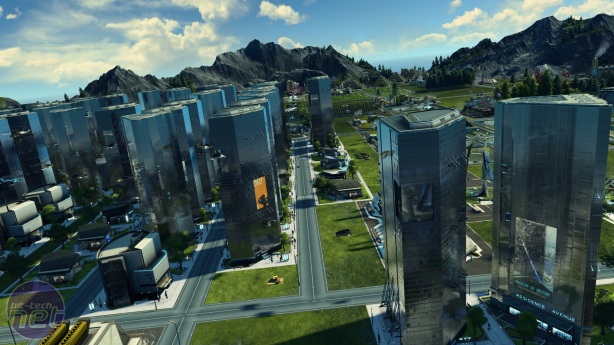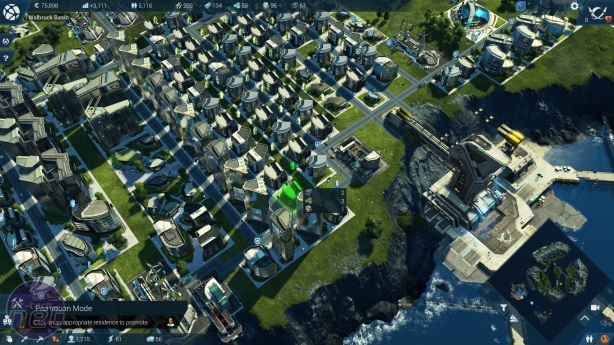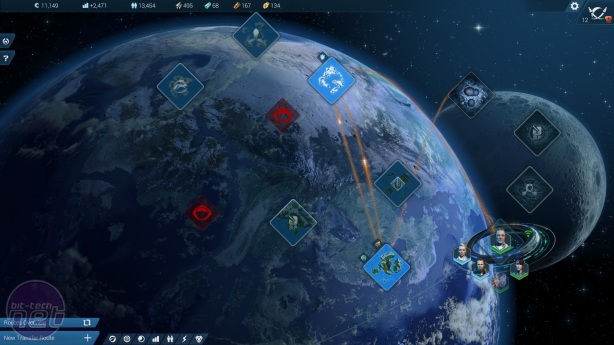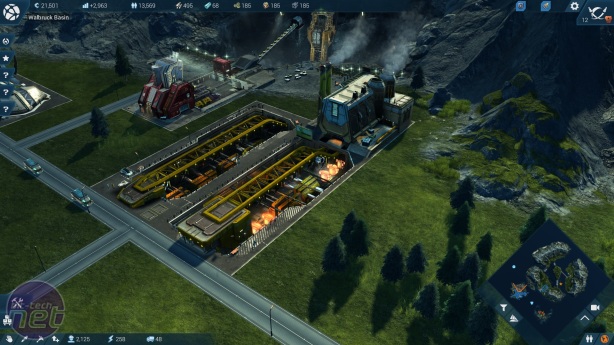
Anno 2205 Review
Price: £49.99 (ouch!)Developer: Ubisoft Blue Byte
Publisher: Ubisoft
Platform: PC
I'm so excited!
And I just can't hide it!
Anno Anno Anno Anno Anno I want you!
Apologies, I've had that spinning around inside my head for the last week while reviewing Anno 2205 (and now you can too). I felt like if I didn't share it with someone, the centrifugal force of my own thoughts would cause my entire head to detach from my neck and zoom off, emitting a noise similar to one of those flying bubble-cars from The Jetsons. If that sounds weird (it definitely sounds weird), imagine living with that sensation for a week. Infuriating.
The worst part is, I wasn't actually that excited to play Anno 2205. I played the previous game in the series, Anno 2070, for just a couple of hours before deciding it was not for me. But Anno 2205 promises the opportunity to build a city on the Moon, and you could coax me into just about anything by adding the words "on the Moon" to the end of your proposition. So into Blue Byte's latest I delved, and discovered a city-builder that is initially far more appealing than 2070, but one which runs into some pretty significant problems as you proceed ever closer to that great white satellite in the sky.
Anno 2205 takes place in a worryingly likely future where corporations build and run entire cities, although the fact they do this in a benevolent and environmentally conscious fashion makes it somewhat less likely. You play the owner of one such corporation, and your main (if not ultimate) goal is to establish a thriving Moon colony. Of course, achieving this requires substantial funding, which you accumulate initially through building a bustling commercial hub on an idyllic, temperate island, and later by constructing an Arctic research station.
Structurally, Anno 2205 is a halfway house between a dedicated city-builder like Cities: Skylines and a more traditional RTS. Like Skylines your city is connected together via a road network. All buildings must be placed roadside, and any structure that isn't connected to a road won't contribute to your city's running. Unlike traditional city-builders, there's a much greater emphasis on harvesting resources and creating specific new products. A basic city only needs a few services to function, a supply of workers, a source of energy, and a transport hub. But if you want to attract more skilled employees, and unlock more complex and valuable product lines, then you need to be capable of producing certain items. Operators, for example, require energy drinks in order to feel satisfied (shallow corporate thralls that they are), which are made in a juicing plant using fruit harvested from citrus farms.
The learning curve is pleasantly gradual, beginning with a few simple tasks and then gradually layering in the complexity over the next few hours. Blue Byte truly begin to tease your brain when you unlock the Arctic region. Certain items can only be developed in specific regions, and if a region needs an item it cannot produce, you must create a trade route to satisfy that need. Consequently, you need a surplus in the producing region, which means building more production factories, harvesting more resources and hiring more workers, which in turn means establishing the necessary infrastructure to support those things as well.

MSI MPG Velox 100R Chassis Review
October 14 2021 | 15:04













Want to comment? Please log in.